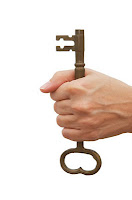Warming up is one of those things we all know we should do. But we want to get to the fun stuff, to playing tunes, so we skip warming up. Or we give it short shrift and move on to more fun things. We might even feel guilty about skipping the “work”, but we skip it anyway. After all, we don’t have a lot of time to practice and we don’t want to waste any of that valuable time doing something that doesn’t really help us play any better.
 Unfortunately, this is a penny wise pound foolish approach. Every moment we spend warming up will contribute to our playing better. Warming up assures that our muscles are ready for strenuous work. Taking a gentle approach also helps us to do more with a reduced probability of injury from overuse of cold muscles and connective tissue. The warm up improves our flexibility in our hands and arms. If dancers just launched into practice without warming up, they’d be on ice, anti-inflammatory pain relievers, and bandage wraps. We are like dancers. But while they are working large muscles, we use those muscles (albeit differently) AND we use some of our very small muscles. And we don’t want to end up on the ice/aspirin regimen, do we?
Unfortunately, this is a penny wise pound foolish approach. Every moment we spend warming up will contribute to our playing better. Warming up assures that our muscles are ready for strenuous work. Taking a gentle approach also helps us to do more with a reduced probability of injury from overuse of cold muscles and connective tissue. The warm up improves our flexibility in our hands and arms. If dancers just launched into practice without warming up, they’d be on ice, anti-inflammatory pain relievers, and bandage wraps. We are like dancers. But while they are working large muscles, we use those muscles (albeit differently) AND we use some of our very small muscles. And we don’t want to end up on the ice/aspirin regimen, do we?
Warming up is key if you are young or old, new to the harp or expert, in a well heated space or in a freezing rehearsal hall. The things you do to warm up with help you be more flexible and limber and will help you improve your form and tone as you work on the music you so desperately want to practice.
 So before you sit to play, be sure to warm up. If it is cold in the room, wear a sweater and wristies or fingerless gloves (think of them as the legwarmers for hands that they are – fashionable and practical). Go slowly and build warmth in the muscles and tendons of your hands and arms. And don’t forget that you are a whole – so warm up your back and legs, as well as your core. Gentle stretching will also help once you have begun to be warm. Some excellent ways to warm up your hands and arms include playing scales and arpeggiated chords in your favorite key. Start slowly and quietly and as you get warmed up you can increase your speed and volume. Watch yourself as you do these to assure that your hands are performing (thumbs and hands in a nice position, close your fingers to achieve release at the end of the movements, breathe, head up, spine erect). This is a time for contemplative performance – monitor yourself, being mindful of your actions, while allowing your body to warm up to the expectations you have undoubtedly set. When you’ve had enough of scales, move into etudes or other simple pieces that you know well. Keep monitoring your play and work to warm up not to perfect the music.
So before you sit to play, be sure to warm up. If it is cold in the room, wear a sweater and wristies or fingerless gloves (think of them as the legwarmers for hands that they are – fashionable and practical). Go slowly and build warmth in the muscles and tendons of your hands and arms. And don’t forget that you are a whole – so warm up your back and legs, as well as your core. Gentle stretching will also help once you have begun to be warm. Some excellent ways to warm up your hands and arms include playing scales and arpeggiated chords in your favorite key. Start slowly and quietly and as you get warmed up you can increase your speed and volume. Watch yourself as you do these to assure that your hands are performing (thumbs and hands in a nice position, close your fingers to achieve release at the end of the movements, breathe, head up, spine erect). This is a time for contemplative performance – monitor yourself, being mindful of your actions, while allowing your body to warm up to the expectations you have undoubtedly set. When you’ve had enough of scales, move into etudes or other simple pieces that you know well. Keep monitoring your play and work to warm up not to perfect the music.And enjoy this time you set aside for yourself. Know that these “useless” activities are the foundation for the rest of your practice, an investment in your rehearsal time, an insurance that you’ll get to keep playing!



